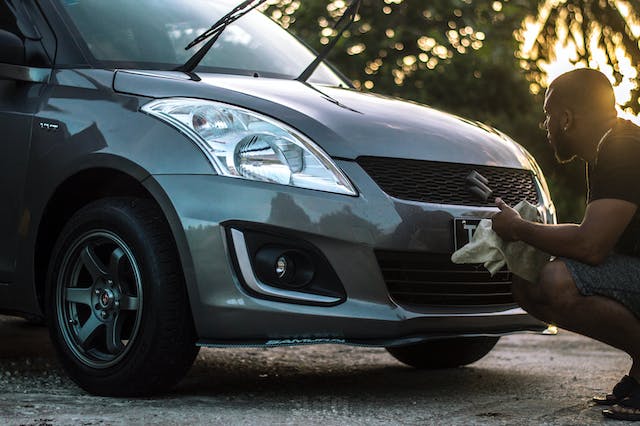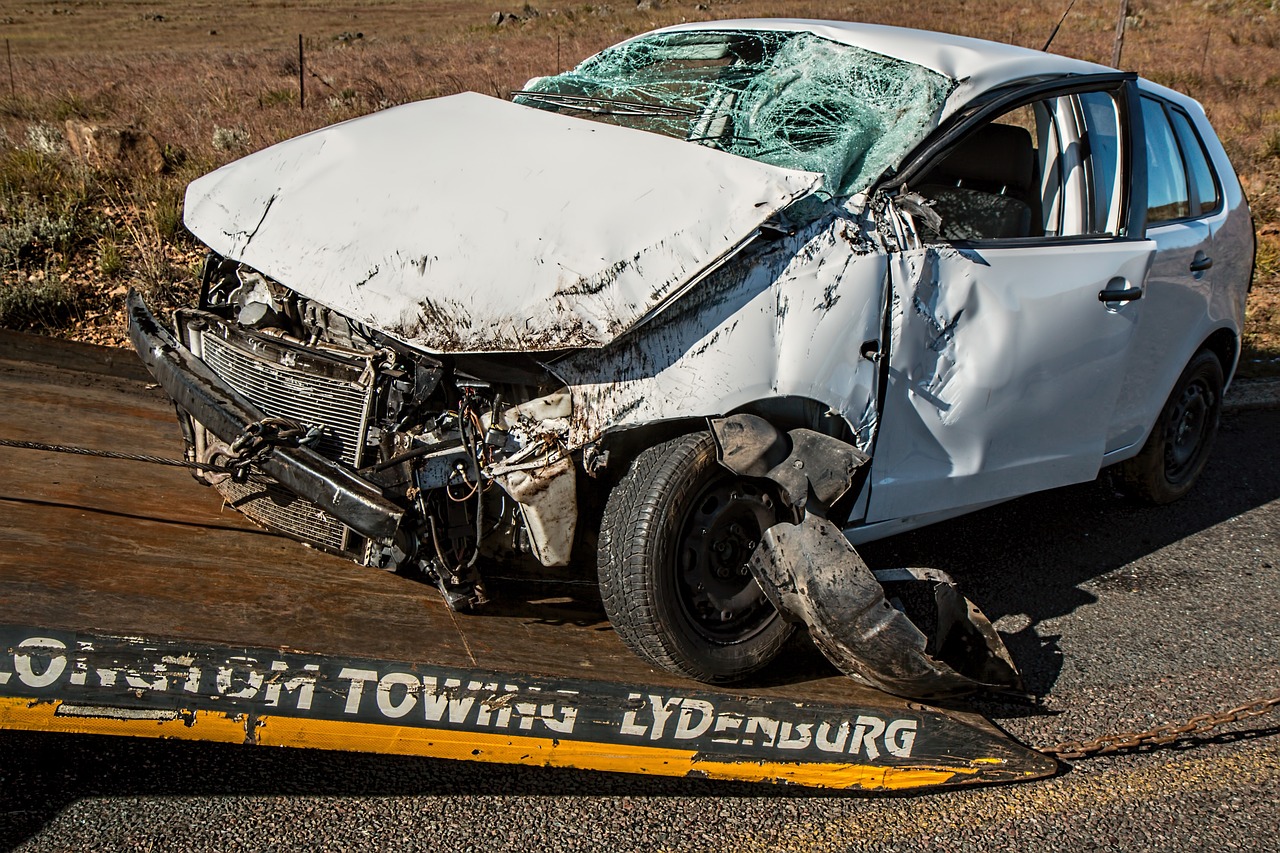A crucial component of proper vehicle ownership is having car insurance. In the event of theft, damage, or accidents, it offers financial protection. Although it is required, there are many kinds of auto insurance to choose from. Comprehensive and third-party are the two most popular kinds. Making an educated choice requires an understanding of how these two forms of coverage vary from one another.
Full-Service Auto Insurance

Often called “full coverage,” comprehensive vehicle insurance is the most comprehensive kind of coverage that is offered. It provides extensive protection against a variety of possible risks and losses. Here’s a deeper look at the main characteristics of full-coverage auto insurance:
1. Accident Coverage:
Comprehensive insurance offers coverage for collisions in which you are at fault in addition to damage to your own car. This implies that your own car’s repair expenses will be paid in the event of an accident.
2. Defense Against Vandalism and Theft:
Comprehensive insurance protects against damage and theft. Your insurance will assist in paying for replacement or repairs if your car is stolen or destroyed.
3. Hazards from nature:
Insurance that covers damage from natural catastrophes like hurricanes, wildfires, earthquakes, and floods is sometimes referred to as comprehensive insurance. For drivers in locations where these kinds of incidents are common, this is especially crucial.
4. Damage to Glass:
Generally speaking, comprehensive coverage pays for windshield replacements or repairs as well as glass damage.
5. Safety against Personal Injury:
In some situations, personal injury coverage is added to comprehensive insurance, providing financial security for accident-related medical expenses.
6. Compensation for Rental Car:
Comprehensive insurance may cover the cost of a rental car if your automobile needs repairs, allowing you to continue driving while it’s being serviced.
7. Protection for Uninsured or Underinsured Drivers:
Certain comprehensive insurance provide coverage in the event that you are in a collision with a motorist who is underinsured or uninsured.
Due to its wide coverage, comprehensive automobile insurance is often more costly than third-party insurance, but offering a higher degree of safety.
Car Insurance for Third Parties
For most drivers, having third-party auto insurance is a must since it covers other people’s damages in collisions in which you are at fault. The following features are included in this kind of insurance:
1. Insurance for Liability:
The expenses related to injuries or property damage that third parties experience as a result of your driving behavior are covered by third-party insurance. It covers hospital costs, auto repair costs, and legal costs in the event that you are sued.
2. Legal Defense:
In the event that you find yourself in a lawsuit after an accident, third-party insurance often covers legal costs.
3. Limited Protection for Personal Vehicles:
Third-party insurance does not cover damage to your own car, in contrast to comprehensive insurance. In the event that you cause an accident, you will be responsible for paying for the repairs or replacement of your car out of pocket.
4. Restricted Extra Protection:
Although some third-party plans could provide more alternatives for coverage at an additional cost, they are often less comprehensive than those offered by comprehensive insurance.
Important Distinctions Between Third-Party and Comprehensive Insurance
1. Scope of Coverage: The scope of coverage is the primary distinction between the two. Third-party insurance mainly covers injuries and damages to other people, while comprehensive insurance offers comprehensive protection for both you and your car.

2. Cost: Due to the greater breadth of coverage that comprehensive insurance gives, it is often more costly than third-party insurance.
3. Legal Requirements: Third-party insurance is often required as a minimum for drivers. Comprehensive insurance is optional, but for those who are prepared to pay the higher price, it provides more peace of mind.
4. Personal Vehicle Protection: Comprehensive insurance is a better option if you value your car and want to be protected against theft, vandalism, natural catastrophes, or personal harm.
5. Risk Tolerance: Depending on your risk tolerance, you may be able to choose between third-party and comprehensive insurance. Third-party insurance could be appropriate if you’re ready to take on greater risk in return for cheaper rates.
6. Vehicle worth: A big factor in your choice is the worth of your car. Choose third-party insurance if your car is old and has a low market value. Generally speaking, comprehensive insurance is advised for a pricey, new vehicle.
7. Geographic Factors: Your selection may be influenced by the region in which you reside. Comprehensive insurance could be more desirable if you live in a region that has frequent natural catastrophes or high rates of crime.
Selecting the Correct Option
The decision between comprehensive and third-party auto insurance is based on your particular situation, requirements, and financial constraints. It’s critical to evaluate the worth of your car, your risk tolerance, and local regulatory requirements.
Even while comprehensive insurance provides the highest level of protection, not all drivers may need it. While some value the extra security and peace of mind that comprehensive insurance offers, others would rather use the difference in cost to fund other financial goals.
The Vehicle’s Age and Condition
Your selection may be significantly influenced by your car’s age and condition. It may not be financially prudent to get comprehensive insurance for older automobiles with lower market values. In certain situations, the price of full coverage can be more than what would be awarded in the event of a complete loss. However, comprehensive insurance is often advised for more recent or expensive cars in order to safeguard your sizeable investment.
Personal Financial Restraints
The selection of the appropriate insurance coverage heavily depends on financial concerns. Because comprehensive insurance covers a wide range of situations, premiums are often higher. You could find that third-party insurance is a more cost-effective choice if money is scarce. But keep in mind that you must strike a balance between your need for safety and budget.
Driving Customs and Background
You should also take your driving experience and habits into account. Because of your reduced risk profile and potential for fewer accidents, you may be more likely to choose third-party insurance if you are a careful, experienced driver with a spotless record. However, comprehensive insurance may provide additional piece of mind if you drive less often or reside in a region where accidents happen frequently.
Extra Coverage Requirements
Do you need any other types of coverage in addition to damage protection and liability? Numerous extra add-ons, such roadside assistance, personal items coverage, and rental vehicle coverage, are often available with comprehensive insurance. Comprehensive insurance can be the preferable option if you value these features.
Taking Into Account Drivers Who Are Underinsured or Uninsured
The frequency of drivers who are underinsured or uninsured is a problem in various areas. Uninsured or underinsured motorist protection combined with comprehensive insurance may provide you an extra degree of security if you’re concerned about getting into an accident with someone who doesn’t have enough insurance.
Geographical Aspects
Your choice of insurance might be greatly influenced by your location. For example, comprehensive insurance becomes more enticing if you reside in a location that is prone to natural catastrophes like hurricanes, earthquakes, or floods. Similarly, full coverage might provide important security if you live in an urban location where theft and vandalism are commonplace.
Individual Preference and Mental Calm
In the end, what matters most are your own tastes and need for mental clarity. For the feeling of security that comprehensive coverage offers, some drivers are ready to spend a higher price. Even if you never have to file a claim, knowing that your car is covered against a variety of hazards may provide you a great deal of peace of mind.
Driving Pattern and Duration
Driving location and frequency might also be significant factors. There may be less of a chance of an accident if you mostly drive your automobile for short, infrequent excursions in places with less traffic. Third-party insurance might be a good option in certain situations. However, the probability of accidents rises if you drive regularly in high-traffic regions or make lengthy daily commutes, which makes comprehensive coverage more enticing.

Resilience in Finances
Think about your financial status and your ability to handle unforeseen costs. You may be more likely to choose a larger deductible on your comprehensive insurance if you have sizable savings or emergency cash. Your premiums may be lowered with a bigger deductible, but in the case of a claim, you will be responsible for a greater amount of the repair expenses.
Long-Term Worth of the Car:
Take your car’s long-term worth into consideration. Comprehensive insurance might be the best option if your automobile is a vintage or has emotional significance. It offers the best possible protection, making sure that your prized car is taken care of in the event of an unexpected incident.
Discounts for Multiple Policies and Vehicles:
You could qualify for savings if you drive more than one car or if you combine your auto insurance with other plans, such as renters’ or homeowners’ insurance. When compared to stand-alone third-party insurance, these savings may make comprehensive coverage more competitively priced.
Regulation and Law Requirements:
It is crucial to comprehend the legal and regulatory standards in your location. There are minimal insurance requirements in certain areas, and not meeting them may result in penalties, license suspension, or even legal repercussions. Make sure the coverage you choose satisfies or surpasses these legal requirements.
In conclusion, there are benefits to both comprehensive and third-party auto insurance, and the decision ultimately boils down to your individual needs and preferences. To make sure you have the appropriate amount of coverage to safeguard yourself, your automobile, and your financial well-being while driving, it’s a good idea to speak with insurance pros and carefully consider your individual requirements and objectives.










